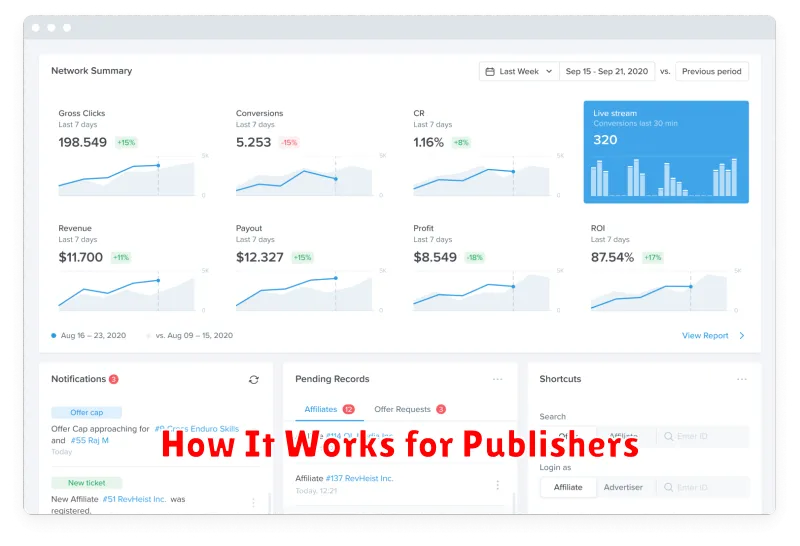Are you intrigued by the potential of earning passive income online? Affiliate marketing offers an exciting opportunity to generate revenue by promoting other companies’ products or services. This comprehensive step-by-step guide will equip beginners with the essential knowledge and practical strategies to launch a successful affiliate marketing venture. Learn how to choose the right niche, select profitable affiliate programs, build a strong online presence, and drive targeted traffic to maximize your earnings potential. Whether you’re a blogger, social media enthusiast, or simply looking to explore the world of online business, this guide is your gateway to mastering the art of affiliate marketing.
This beginner’s guide simplifies the often-complex world of affiliate marketing, breaking it down into manageable steps. From understanding the fundamentals of how affiliate marketing works to implementing advanced techniques for optimizing conversions, you’ll gain valuable insights to accelerate your success. This guide also provides a clear overview of affiliate programs, offering guidance on selecting the right programs aligned with your chosen niche. Discover how to effectively leverage various online platforms, create compelling content, and track your performance to continuously refine your affiliate marketing strategy.
What Is Affiliate Marketing?
Affiliate marketing is a performance-based marketing strategy where a business rewards one or more affiliates for each visitor or customer brought about by the affiliate’s own marketing efforts.
Essentially, you promote another company’s product or service and earn a commission for every sale or lead generated through your unique affiliate link.
How It Works for Publishers

For publishers, affiliate marketing offers a revenue stream by promoting products or services. It begins by selecting an affiliate program relevant to your audience.
Once joined, you’ll receive unique affiliate links or other tracking tools. These are integrated into your content, be it a blog post, social media update, or email newsletter.
When a user clicks your link and completes a desired action (a purchase, for example), you earn a commission.
Choosing a Profitable Niche
A niche represents a specific segment of a market. In affiliate marketing, choosing the right niche is crucial for success. Focus on a niche that genuinely interests you and aligns with your skills or knowledge.
Profitability depends on factors like demand, competition, and potential earnings. Research niches with a balance of reasonable competition and strong consumer demand. Tools like keyword research tools can help assess market interest.
Consider niches with potential for recurring commissions, such as subscription services, rather than solely one-time purchases. Evaluate existing affiliate programs within your chosen niche to understand commission structures and potential earnings.
Finding the Right Affiliate Programs
Choosing the right affiliate programs is crucial for success. Consider factors like relevance to your niche, commission rates, and the reputation of the program.
Research various affiliate networks and individual company programs. Look for programs offering products or services that align with your audience’s interests and needs. A good fit ensures higher engagement and conversion rates.
Creating Trustworthy Content
Trust is the cornerstone of successful affiliate marketing. Without it, your audience won’t click your links, let alone make a purchase. Building trust starts with creating high-quality, valuable content.
Focus on providing genuine, helpful information that addresses your audience’s needs and pain points. Authenticity is key. If you don’t believe in the product or service you’re promoting, it will show. Transparency is also crucial. Clearly disclose your affiliate relationships to maintain credibility.
Using SEO and Social to Promote
Search Engine Optimization (SEO) is crucial for driving organic traffic to your affiliate offers. Focus on relevant keywords within your content to improve search engine rankings.
Social media platforms offer another avenue for promotion. Engage your audience with valuable content related to your niche and subtly integrate your affiliate promotions.
Compliance and Disclosure Rules
Transparency is paramount in affiliate marketing. You are legally required to disclose your affiliate relationships to your audience.
The Federal Trade Commission (FTC) mandates clear and conspicuous disclosures. This means your audience should easily understand that you may receive a commission for promoting products or services.
Place your disclosures near the recommendation, avoid vague language, and ensure they are easily noticeable. Using phrases like “affiliate link” or “paid partnership” is recommended.
Tracking Conversions and Commissions
Tracking your affiliate marketing efforts is crucial for measuring success and optimizing campaigns. Understanding how your audience interacts with your promotions helps you refine strategies and maximize earnings.
Affiliate networks provide unique tracking links for each offer. These links allow the network to attribute conversions (sales, leads, etc.) back to your specific efforts. Always use these provided links to ensure accurate commission reporting.
Regularly monitor your performance dashboard within the affiliate network. This dashboard usually provides data on clicks, conversions, commission rates, and payouts. Analyzing these metrics allows you to identify what’s working and what needs improvement.
Scaling Your Affiliate Revenue
Once you’ve seen initial success, it’s time to scale. This involves strategically expanding your reach and optimizing your campaigns for maximum impact. Diversification is key. Explore different traffic sources, such as social media, email marketing, and paid advertising. Don’t rely solely on one platform.
Data analysis is crucial. Track your key metrics like conversion rates, click-through rates, and earnings per click. Identify what’s working and double down on those strategies. Continuously optimize your campaigns based on data insights to improve performance and increase revenue.
Common Pitfalls to Avoid
Starting with affiliate marketing can be exciting, but there are common mistakes beginners should avoid. Choosing the wrong niche can lead to low engagement. Focus on areas you are passionate about and have a genuine interest in.
Ignoring your audience is another critical error. Understanding their needs and preferences is key to effective promotion. Over-promoting products can also damage your credibility. Focus on providing value and genuine recommendations.
Finally, neglecting analytics will hinder your progress. Tracking your performance is crucial for identifying what works and what needs improvement.

